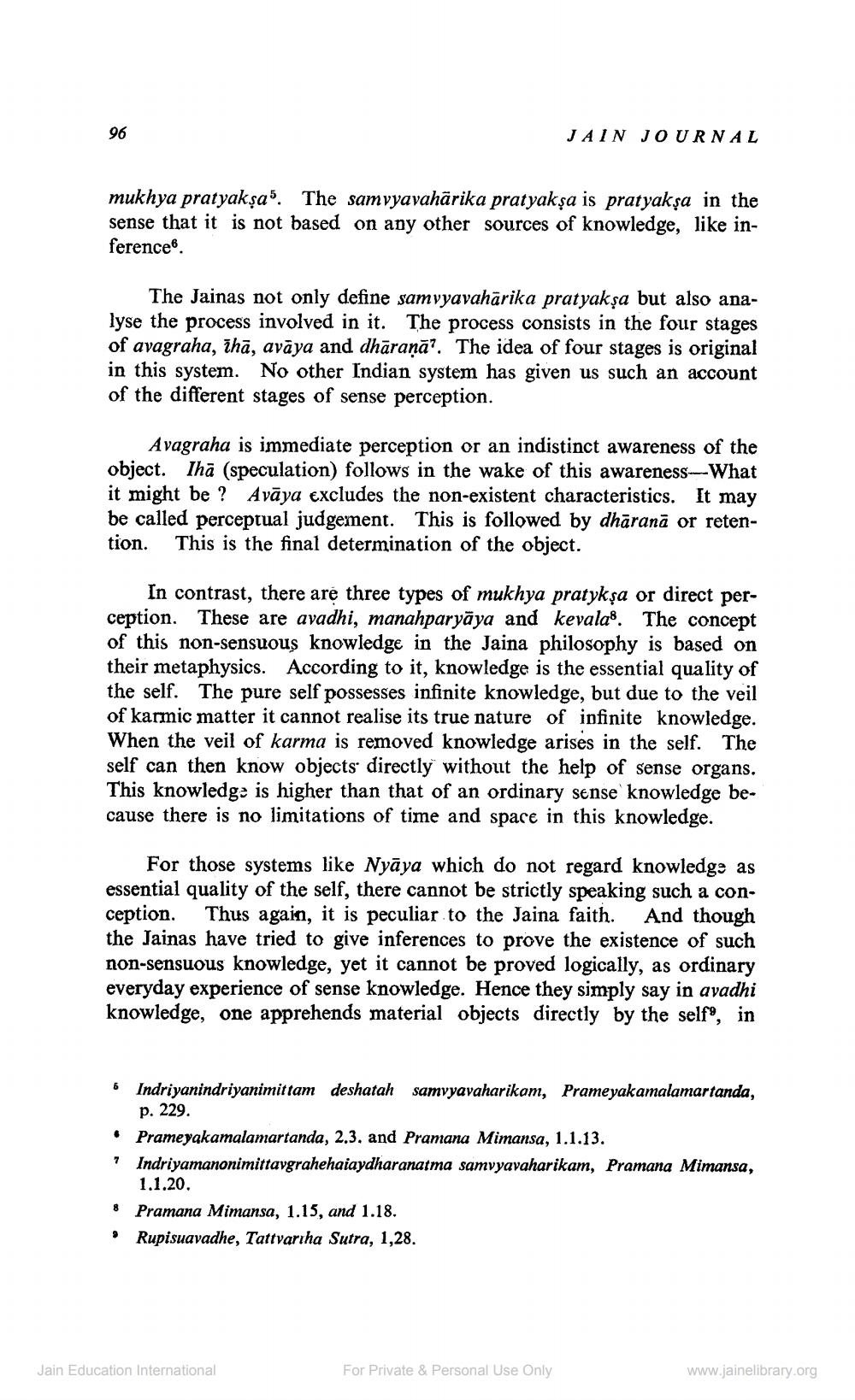________________
96
JAIN JOURNAL
mukhya pratyakşa'. The samvyavahārika pratyakşa is pratyakṣa in the sense that it is not based on any other sources of knowledge, like inference
The Jainas not only define samvyavahārika pratyakşa but also analyse the process involved in it. The process consists in the four stages of avagraha, īhā, avāya and dhāraņā”. The idea of four stages is original in this system. No other Indian system has given us such an account of the different stages of sense perception.
Avagraha is immediate perception or an indistinct awareness of the object. Thā (speculation) follows in the wake of this awareness-What it might be ? Avāya excludes the non-existent characteristics. It may be called perceptual judgement. This is followed by dhāranā or retention. This is the final determination of the object.
In contrast, there are three types of mukhya pratykşa or direct perception. These are avadhi, manahparyāya and kevala. The concept of this non-sensuous knowledge in the Jaina philosophy is based on their metaphysics. According to it, knowledge is the essential quality of the self. The pure self possesses infinite knowledge, but due to the veil of karmic matter it cannot realise its true nature of infinite knowledge. When the veil of karma is removed knowledge arises in the self. The self can then know objects directly without the help of sense organs. This knowledge is higher than that of an ordinary sense knowledge because there is no limitations of time and space in this knowledge.
For those systems like Nyāya which do not regard knowledge as essential quality of the self, there cannot be strictly speaking such a conception. Thus again, it is peculiar to the Jaina faith. And though the Jainas have tried to give inferences to prove the existence of such non-sensuous knowledge, yet it cannot be proved logically, as ordinary everyday experience of sense knowledge. Hence they simply say in avadhi knowledge, one apprehends material objects directly by the self', in
6 Indriyanindriyanimittam deshatah samvyavaharikam, Prameyak amalamartanda,
p. 229. • Prameyakamalamartanda, 2.3. and Pramana Mimansa, 1.1.13. 7 Indriyamanonimittavgrahehaiaydharanatma samvyavaharikam, Pramana Mimansa,
1.1.20. Pramana Mimansa, 1.15, and 1.18. Rupisuavadhe, Tattvarıha Sutra, 1,28.
Jain Education International
For Private & Personal Use Only
www.jainelibrary.org




